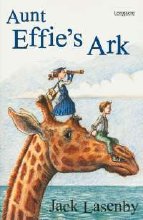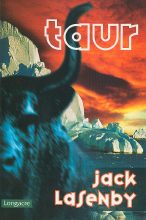Jack Lasenby Interview
September, 2019: One of New Zealand’s greatest children’s authors has died. Jack Lsaenby was an inspiration to me and many other writers and enthralled children with his books. Jack Lasenby talked about the importance of telling stories, his favourite books, and the future of reading in this interview from 2012:
I don’t think the imagination will grow unless you hear the great scary stories early enough…we have to have those stories so we can control them and they don’t control us.
Jack Lasenby is a ‘storytelling animal’. Growing up in the 1930s’ Depression his imagination was ‘terrorised’ into life by a great uncle’s storytelling. He later spent many years deer culling and that rugged environment became a powerful motif in his writing. His range is remarkable: political fantasy (The Conjuror); tall tales (Uncle Trev and Harry Wakatipu); dystopian sci-fi (Travellers quartet); the Seddon St trilogy is like Hucklebery Finn and Aunt Effie pure humour.
Raymond: The Aunt Effie books have been described as a ‘kaleidoscope’ of history and geography. Is that accurate?
Jack: I’ve tried to move time and space around, to use anachronism deliberately, telescoping, as well as  kaleidoscoping. So, side by side, ball point pens, flying boats, horse-drawn trams, and a wooden Auckland harbour bridge that never existed. I’ve always been interested by children’s ideas of time, remembering what seemed enormities of past and future and my early inability to distinguish them from present.
kaleidoscoping. So, side by side, ball point pens, flying boats, horse-drawn trams, and a wooden Auckland harbour bridge that never existed. I’ve always been interested by children’s ideas of time, remembering what seemed enormities of past and future and my early inability to distinguish them from present.
I tried to hint at the flexibility, the flowing backwards and forwards of time, over several generations of personal and national history. I still remember my delight at first reading Rip Van Winkle, seeing its link with the Sleeping Beauty, and wondering how to manage that for myself, to jump time and come back later.
I’m a mixture of all my ages, and I expect my books to be interesting to people of all ages.
R: Your books defy categorisation: Aunt Effie is labelled Junior Fiction, yet it includes instructions on priming the engine of a Model-T car.
J: If my books defy categorisation, then I’m delighted. Categorising seems to me unnecessary in most cases. As a teacher, I always tried to avoid it when discussing books with my own students. The silliest categories are those which divide literature into adults’ and children’s, and girls’ and boys’. I used to hate being told, “That book’s too old for you, Jack,” and made sure I read every such title.
The book describes the starting of a Model T because I’m interested in it. Being a motor idiot, I’m interested by the language and the behaviour of those who are mechanically gifted, as well as by machines. Computers, however, bore me. What they do is marvellous; but they lack the working attractiveness of a Model T.
I’m not writing for a particular child, nor for children in particular. I write as Sendak described himself writing, for myself. I’m a mixture of all my ages, and I expect my books to be interesting to people of all ages.
For whom did Dickens write David Copperfield? I suspect much of it was written for the little boy who suffered from being sent to work in the blacking factory. At the same time, it’s also written for extremely sophisticated readers, but the child reader doesn’t see that. Children take from a book what they wish to, what they understand, and they pass over what they don’t, as in the rest of life.
…wish I’d had The God Beneath the Sea, The Golden Shadow, and Graves’s Greek Myths when I was young.
R: What books are essential reading for young people?
 J:I can only recommend what I grew up with: Alice, Treasure Island, King Solomon’s Mines, Gulliver’s Travels, Robinson Crusoe, Kim, The Jungle Books, Huckleberry Finn, and Anne of Green Gables through to modern classics by Ransome, Philippa Pearce, Alan Garner, Joan Aicken, Rumer Godden, William Mayne, Peter Dickinson, Voigt, Le Guin. (I deliberately omit the New Zealanders, taking them for granted.) I’m reluctant to recommend recent books, with the exception of Pullman’s Northern Lights, because I don’t know enough about most of them, and they haven’t yet won their place.
J:I can only recommend what I grew up with: Alice, Treasure Island, King Solomon’s Mines, Gulliver’s Travels, Robinson Crusoe, Kim, The Jungle Books, Huckleberry Finn, and Anne of Green Gables through to modern classics by Ransome, Philippa Pearce, Alan Garner, Joan Aicken, Rumer Godden, William Mayne, Peter Dickinson, Voigt, Le Guin. (I deliberately omit the New Zealanders, taking them for granted.) I’m reluctant to recommend recent books, with the exception of Pullman’s Northern Lights, because I don’t know enough about most of them, and they haven’t yet won their place.
I’ve become a great believer in letting time do the winnowing for me, which saves me wasting my time on a lot of fifth-rate stuff. One of the greatest gifts I could give a child would be an introduction to the stories and the poetry of the King James Bible and the Book of Common Prayer, but without any proselytising.
Myths and legends and folk and fairy stories. Europe and the Mediterranean world are rich in them. I read Tanglewood Tales as a child, and now wish I’d had The God Beneath the Sea, The Golden Shadow, and Graves’s Greek Myths when I was young enough for them to have their full effect. Maori, Polynesian, Indian myth: it doesn’t matter what the source, they are important to give the idea of myth from which comes our sense of story.
R: The Travellers series was a dark vision of the future. Are you feeling any more optimistic about society?
J: No. Human nature remains the same. I don’t see the Travellers Quartet as visionary: it seems obvious to me that evil is always present. What’s more important, of course, in all my books is the fact that goodness is as omnipresent as evil. So, in The Lake, The Conjuror, and Kalik there is an arrival and a turning point, a moment when evil is shown as something that can be overcome, even if only temporarily. I’d describe myself as hopeful rather than pessimistic, but a rational hoper.
Books will survive a long time because there’s nothing as convenient, nothing else that entertains and informs us in so “human” a manner.
R: What about the future of reading and books?
J: Many present writers, for children and adults, seem to me like somebody with something to sell, trying to astonish us with new and evermore extreme ideas. That’s merely “Wow!” writing; and like “Wow!” television it’s skinny and unsatisfying.
I still wonder if books will survive a long time because there’s nothing as convenient, nothing else that entertains and informs us in so “human” a manner. A book works at my speed, comfortable and slow, faster when I want it to be, then slow again. Many of my books are old friends.
A world of chaos is a high possibility, given the human urge to dominate others, but our need for story, for understanding ourselves through story, our history through story, for entertaining ourselves with story is a constant.
Considering what television could do for us, it’s just a spoilt brat of a monster out of control. The intelligence (story) that penetrates the world of books could have continued through television, but it hasn’t. Television has the potentiality to be a marvellous medium for the story; it has been used to clone stupidity on a couple of generations.
Even if the book were to disappear, it just means that story would continue in another form. We cannot help telling stories, listening to stories, asking for stories, making up stories. We are the storytelling animal.